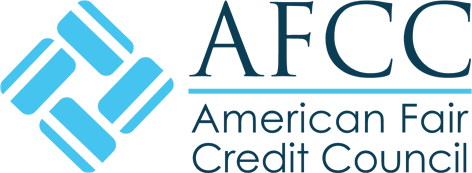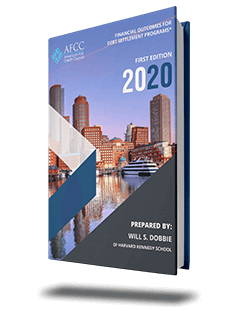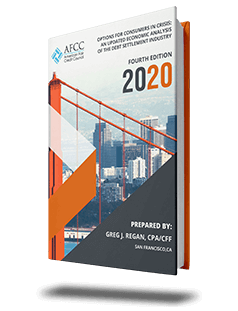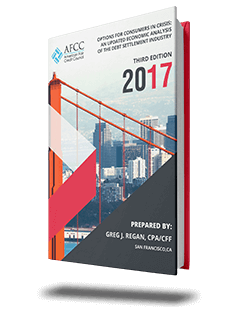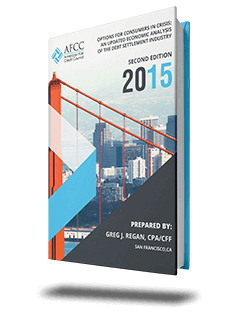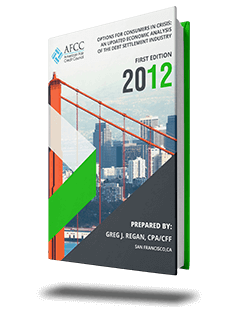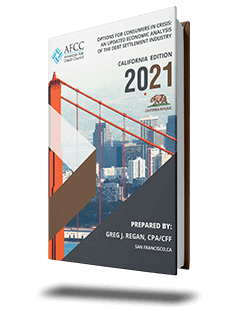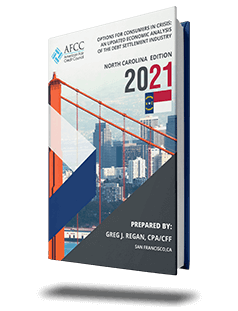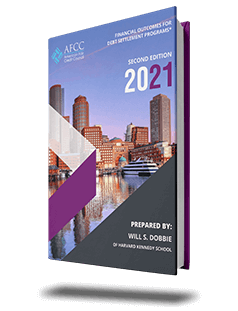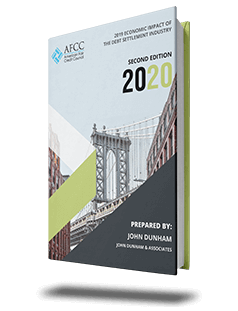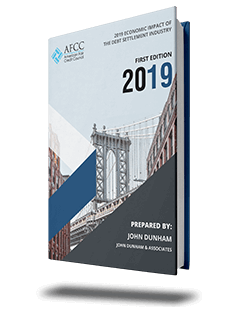Financial Outcomes for Debt Settlement Programs – First Edition
Financial Outcomes for Debt Settlement Programs
First Edition - Published May 2, 2020This report was commissioned by the American Fair Credit Council (AFCC) in 2019 to determine the financial outcomes of individuals enrolled in debt settlement programs by calling upon detailed data for a sample population of approximately 110,000 individuals and 735,000 accounts.
Additionally, this study looked at the methodology, analyses, and results described in a series of reports by Hemming Morse, LLP (Greg Regan) that also examined the financial outcomes of individuals enrolling in a debt settlement program to determine whether the data supports the analyses and conclusions of the “Regan Report.” In the end, Dobbie’s work found that that his results are substantially identical to those in the most recent Regan iteration.
Moreover, in reviewing the evidence from recent research, the report concludes that debt settlement programs had the potential to significantly benefit many financially distressed individuals, particularly if they were not eligible for Chapter 7 bankruptcy.
- 76 percent of individuals in debt settlement programs successfully settled at least one account over the first 36 months.
- Within the first 36 months, approximately 51 percent of the clients’ enrolled debt was settled.
- On average, settled accounts yielded savings of about $1,700 based on the current balance and after accounting for fees.
- Individuals saved an average of just under $5,800 on settled accounts based on the current balance and after fees.
- Individuals enrolling in debt settlement programs received an average debt write-down of 33.2 percent on settled accounts after accounting for fees.
Options for Consumers in Crisis
An Updated Economic Analysis of the Debt Settlement Industry
In 2012, the American Fair Credit Council (AFCC) commissioned the first-ever independent analysis of the economic impact of the debt settlement industry on enrolled participants. Since then, the AFCC has commissioned four reports overseen by Greg Regan of Hemming Morse LLP, all of which exemplify the immense benefits of debt settlement for consumers struggling with unsecured debt.
State Versions
Options for Consumer in Crisis
The following state-specific versions of the recent independent “Regan Report” are a supplement in the series of reports overseen by Greg Regan of Hemming Morse LLP. These iterations exemplify how debt settlement serves consumers in financial hardship each day by offering significant and measurable financial benefits.
Financial Outcomes for Debt Settlement Programs
The American Fair Credit Council (AFCC) commissioned these two reports in 2019 and 2020, both of which were completed by Will S. Dobbie, Professor of Public Policy at Harvard Kennedy School of Government. The reports examine current evidence as well as past research conducted by Greg Regan of Hemming Morse LLP, while concluding that the Regan Report’s results were correct and debt settlement programs offer significant benefits to financially distressed individuals.
Economic Impact Report
The 2019 and 2020 Economic Impact Reports analyze the debt settlement industry’s national and local economic impact. These independent studies, which were commissioned by the AFCC from John Dunham & Associates, demonstrate the overwhelming importance of debt settlement for consumers, the U.S. economy as a whole, and state economies across the nation.
